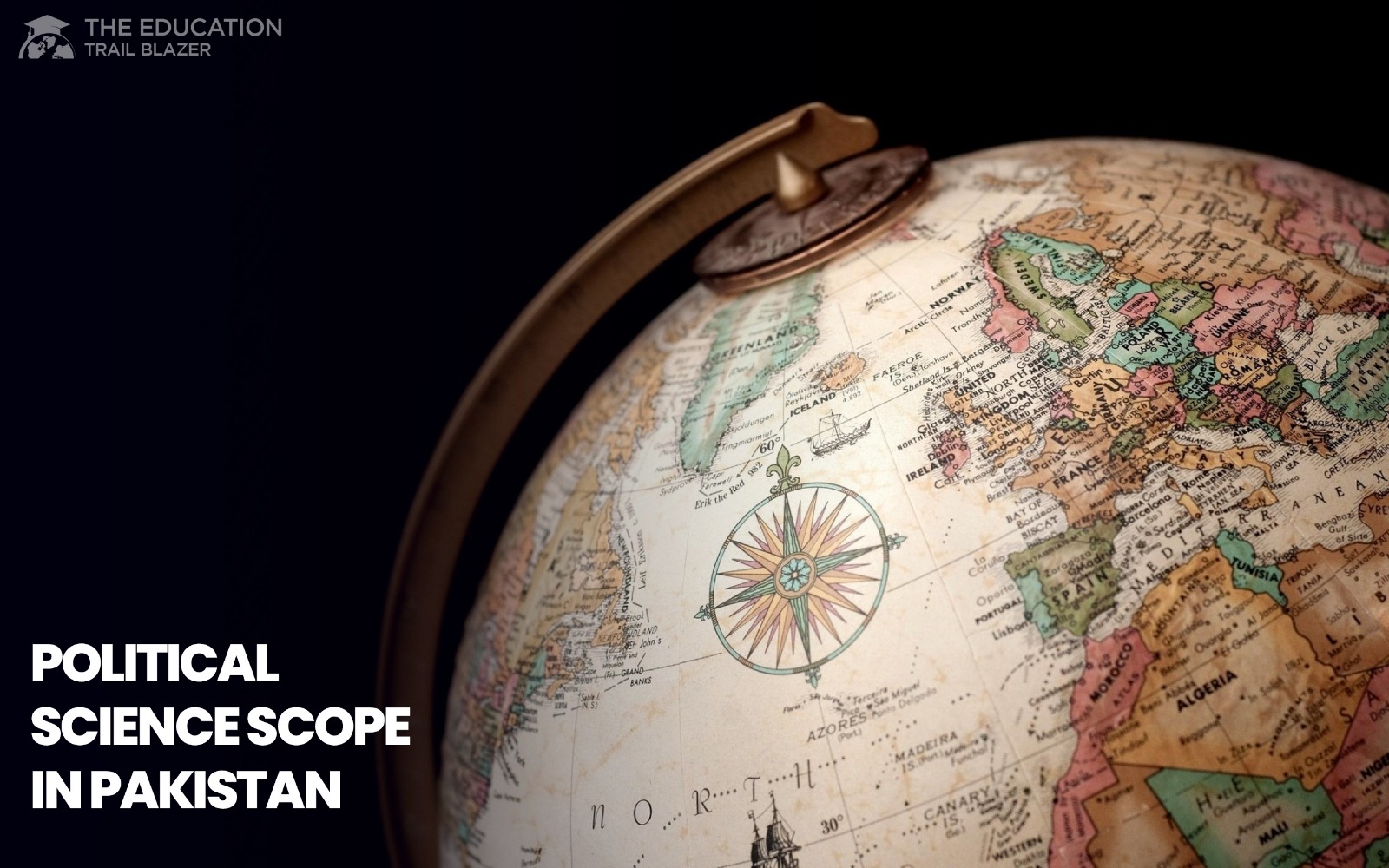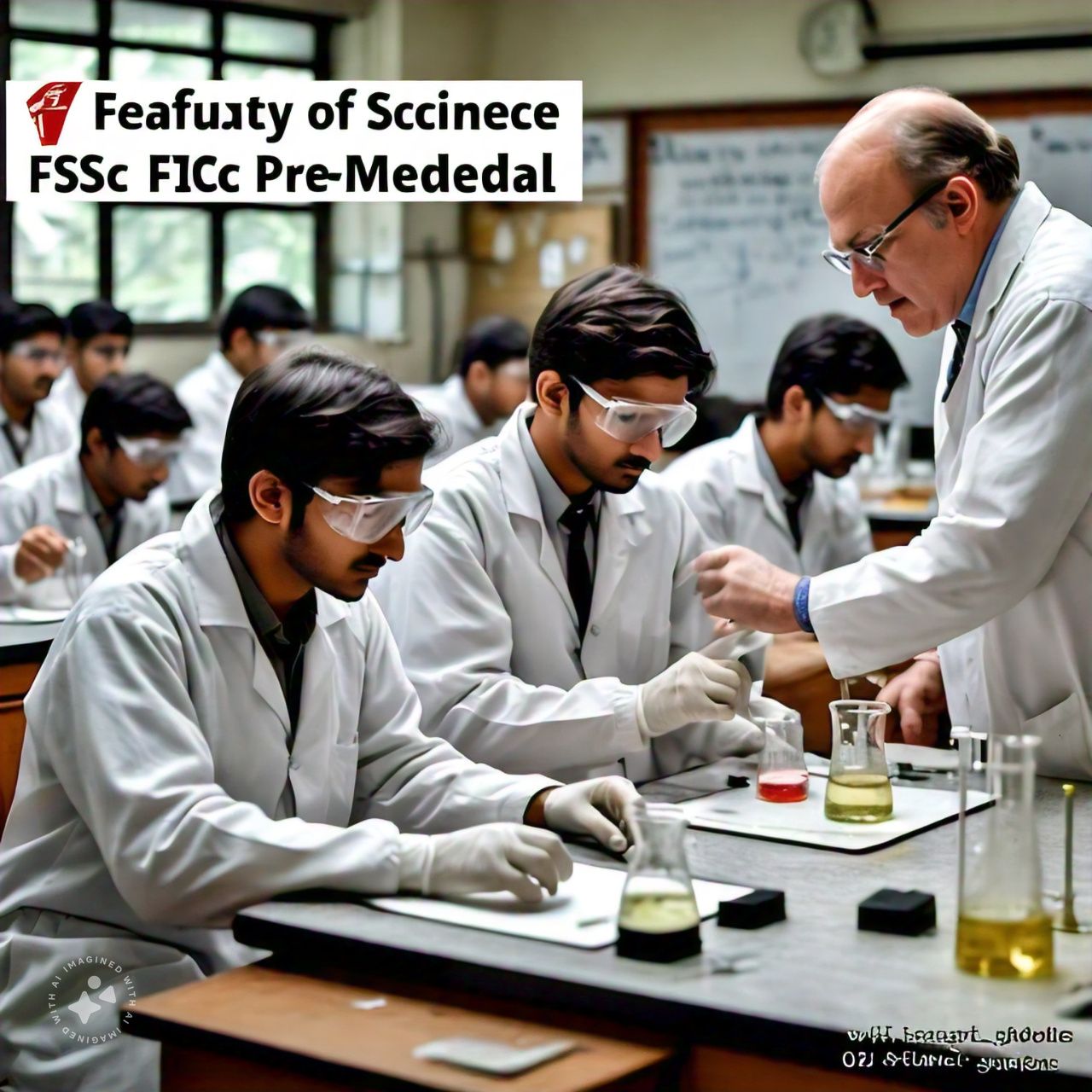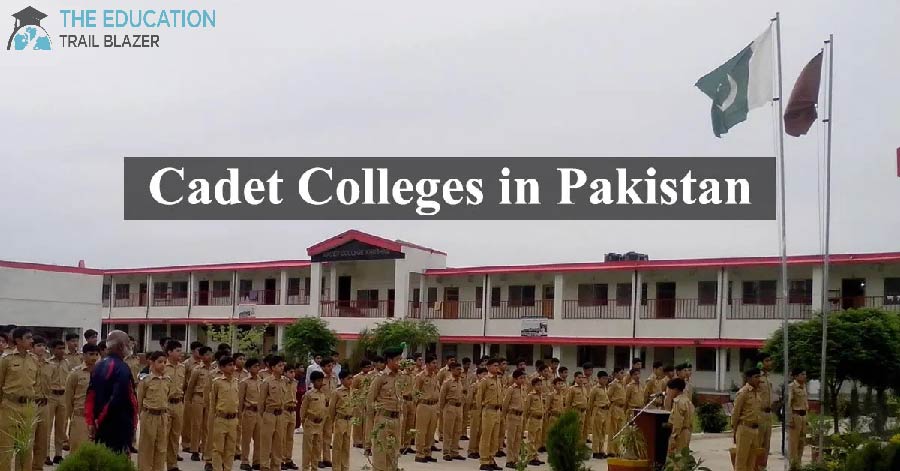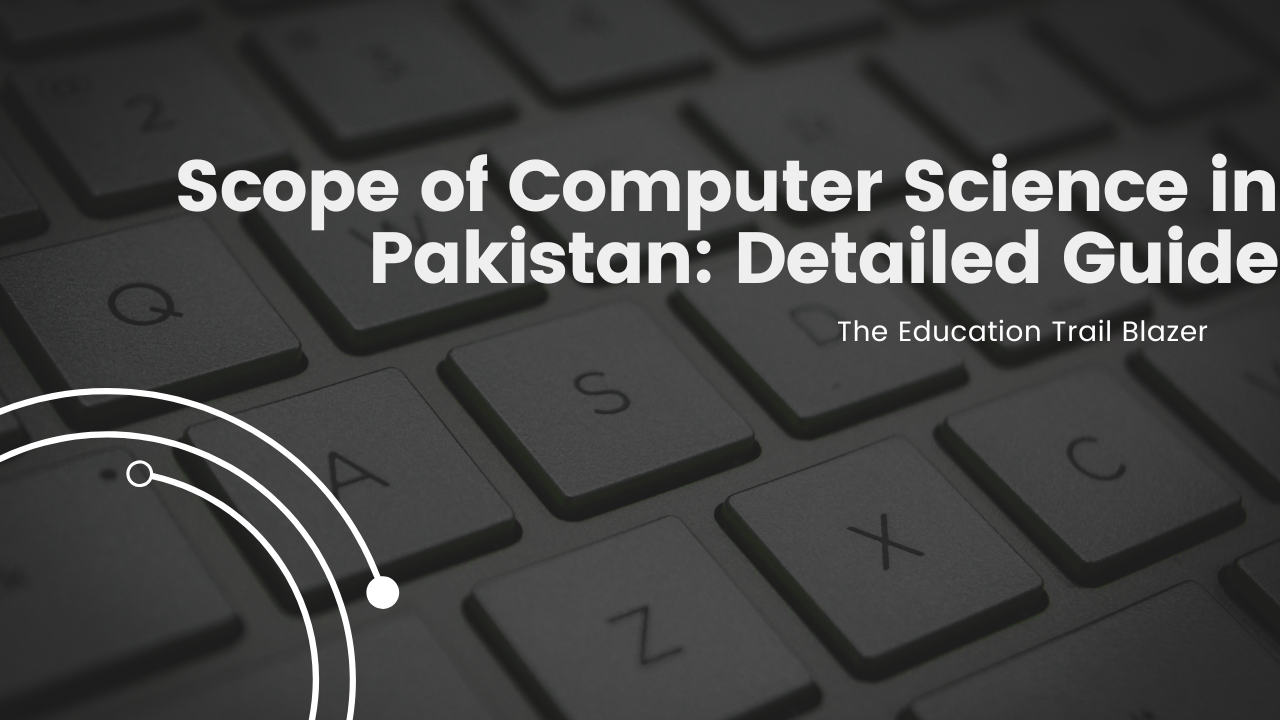Political science scope is the study of politics, power, and governance. It examines how political systems, institutions, actors, and processes operate and interact at different levels of analysis, such as local, national, regional, and global. Political science also explores the political ideas, ideologies, values, and norms that shape and influence human behavior and decision-making.
Political science is a broad and diverse discipline that encompasses various subfields, such as political theory, comparative politics, public policy and administration, international relations, political economy, and political sociology. Political science also draws on insights and methods from other social sciences, such as history, economics, sociology, psychology, and anthropology.
In this article, we will discuss the scope of political science scope in Pakistan, its importance, key concepts and theories, political issues and challenges, career opportunities, and the future prospects of this field. We will also provide some useful tips and resources for students who are interested in pursuing political science as a major or a career.
Introduction to Political Science Scope in Pakistan
Political science is one of the oldest and most popular academic disciplines in Pakistan. It has a long and rich history of teaching and research in various universities and colleges across the country. According to the Higher Education Commission (HEC) of Pakistan, there are more than 100 public and private institutions that offer degree programs in political science at different levels, such as bachelor’s, master’s, MPhil, and PhD.
The curriculum of political science in Pakistan covers a wide range of topics and themes related to politics and governance in Pakistan and beyond. Some of the common subjects that are taught in political science courses include:
- Introduction to Political Science
- History of Political Thought
- Comparative Politics
- Pakistani Politics
- Political Systems of the World
- Democracy and Governance
- Political Ideologies
- Political Institutions
- Political Parties and Elections
- Public Policy and Administration
- International Relations
- Foreign Policy of Pakistan
- Research Methods in Political Science
The objectives of political science education in Pakistan are to:
- Provide students with a comprehensive understanding of the nature, scope, and significance of politics and governance in the contemporary world.
- Develop students’ critical thinking, analytical, communication, and research skills that are essential for academic and professional success.
- Enhance students’ awareness and appreciation of the diversity and complexity of political phenomena and perspectives across different cultures and contexts.
- Encourage students’ civic engagement and participation in political processes and activities at various levels.
- Prepare students for a variety of careers in public service, education, media, law, diplomacy, civil society, international organizations, and other sectors.
Importance of Political Science
Political science is an important field of study for several reasons. Some of the benefits of studying political science are:
- It helps us understand the world we live in. Political science provides us with the knowledge and tools to analyze the political realities and challenges that we face in our daily lives. It helps us comprehend how political systems work, how policies are made and implemented, how power is distributed and exercised, how conflicts are resolved or escalated, how cooperation is achieved or undermined, how rights are protected or violated, how interests are represented or ignored, how values are promoted or challenged, how identities are formed or changed, how cultures are influenced or transformed by politics.
- It helps us develop critical thinking skills. Political science teaches us how to think critically about politics and governance. It helps us evaluate the validity and reliability of information sources, arguments, evidence, and claims. It helps us identify the assumptions, biases, and perspectives that underlie different political views and opinions. It helps us compare and contrast different political theories, models, and frameworks. It helps us formulate clear, logical, and coherent arguments, questions, and hypotheses.
- It helps us improve our communication skills. Political science enables us to communicate effectively about politics and governance. It helps us express our own political views and opinions in a clear, persuasive, and respectful manner. It helps us listen to, understand, and respond to the political views and opinions of others in a constructive, civilized, and empathetic way. It helps us participate in meaningful, informed, and productive political discussions, debates, and dialogues.
- It helps us prepare for our careers. Political science opens up a wide range of career options for us in various sectors and fields. It helps us gain the qualifications, competencies, and credentials that are required for many jobs and professions that involve politics and governance. It helps us develop the transferable skills that are valued by many employers, such as problem-solving, decision-making, teamwork, leadership, creativity, adaptability, etc.
Key Concepts and Theories
Political science is based on several key concepts and theories that help us understand and explain the political phenomena and processes that we observe and experience. Some of the most important concepts and theories in political science are:
Democracy and Governance
Democracy is a form of government in which the people have the power to choose their leaders and hold them accountable through free and fair elections. Democracy also implies respect for human rights, the rule of law, the separation of powers, the checks and balances, the pluralism, the tolerance, and the participation of the people in public affairs.
Governance is the process of making and implementing decisions by the authorities in charge of a political community. Governance can be evaluated based on various criteria, such as legitimacy, transparency, accountability, responsiveness, effectiveness, efficiency, equity, inclusiveness, etc.
Political science studies the different types, models, and dimensions of democracy and governance in different contexts and regions. It also examines the challenges and opportunities for democracy and governance in the face of globalization, democratization, decentralization, civil society, social movements, media, etc.
Political Ideologies in Pakistan
Political ideologies are sets of beliefs, values, and ideas that shape and influence the political views and actions of individuals and groups. Political ideologies provide a framework for understanding and interpreting the political world and a guide for pursuing political goals and interests.
Political science analyzes the different political ideologies that exist in Pakistan and how they affect the political behavior and culture of the people. Some of the major political ideologies in Pakistan are:
- Islamism
- Liberalism
- Nationalism
Political Institutions in Pakistan
Political institutions are formal or informal rules, norms, and organizations that structure and regulate the political behavior and interactions of individuals and groups. Political institutions provide stability, order, and predictability to the political system. Political institutions also reflect and shape the power relations and interests of different actors and groups.
Political science studies the different political institutions that exist in Pakistan and how they function and perform in different contexts and situations. Some of the main political institutions in Pakistan are:
The Parliament (National Assembly and Senate)
The Parliament is the supreme legislative body of Pakistan. It consists of two houses: the National Assembly and the Senate. The National Assembly is the lower house of Parliament. It has 342 members who are elected by direct vote for a five-year term. The National Assembly represents the people of Pakistan. The Senate is the upper house of Parliament. It has 104 members who are elected by indirect vote by the provincial assemblies for a six-year term. The Senate represents the federating units of Pakistan.
The Parliament has several functions and powers, such as:
- Making laws
- Approving budgets
- Electing the Prime Minister
- Holding the government accountable
- Representing public opinion
The Executive (President and Prime Minister)
The Executive is the branch of government that implements and enforces the laws made by Parliament. It consists of two offices: the President and the Prime Minister. The President is the head of state of Pakistan. He or she is elected by indirect vote by an electoral college composed of members of Parliament and provincial assemblies. The President has a five-year term. The President has several functions and powers, such as:
- Appointing key officials
- Granting pardons
- Declaring a state of emergency
- Dissolving the Parliament
- Acting as the symbol of national unity and sovereignty
The Prime Minister is the head of government of Pakistan. He or she is elected by the majority of the members of the National Assembly. The Prime Minister has no fixed term. The Prime Minister has several functions and powers, such as:
- Forming and leading the cabinet
- Determining the policies and programs of the government
- Coordinating and supervising the ministries and departments
- Representing Pakistan in international forums and negotiations
The Judiciary (Supreme Court and Lower Courts)
The Judiciary is the branch of government that interprets and applies the laws made by Parliament. It consists of various courts at different levels, such as:
- The Supreme Court: The Supreme Court is the highest court of Pakistan. It has 17 judges who are appointed by the President on the advice of the Chief Justice. The Supreme Court has several functions and powers, such as:
- Hearing appeals from lower courts
- Exercising original jurisdiction over constitutional matters
- Enforcing fundamental rights
- Reviewing the validity of laws and executive actions
- Acting as the guardian of the constitution
The High Courts
The High Courts are the highest courts in each province. They have a number of judges who are appointed by the President on the advice of the Chief Justice of Pakistan and the Governor of the province. The High Courts have several functions and powers, such as:
- Hearing appeals from lower courts
- Exercising original jurisdiction over civil and criminal matters
- Supervising and controlling the lower courts
- Issuing writs for the enforcement of fundamental rights
- The Lower Courts: The Lower Courts are the subordinate courts in each district. They include various types of courts, such as:
- District and Sessions Courts: These are the principal courts of original jurisdiction in civil and criminal matters.
- Additional District and Sessions Courts: These are the courts that assist the District and Sessions Courts in their work.
- Civil Courts: These are the courts that deal with civil cases, such as suits for recovery, injunction, declaration, etc.
- Criminal Courts: These are the courts that deal with criminal cases, such as offences against the state, person, property, etc.
- Family Courts: These are the courts that deal with family matters, such as marriage, divorce, custody, maintenance, etc.
- Special Courts and Tribunals: These are the courts that deal with specific matters, such as anti-terrorism, accountability, banking, customs, etc.
The Judiciary has several functions and powers, such as:
- Ensuring justice and fairness
- Maintaining law and order
- Protecting rights and liberties
- Resolving disputes and conflicts
- Upholding the rule of law
Political Parties and Elections
Political parties are organizations that seek to influence or control government by nominating candidates for public office and mobilizing voters to support them. Political parties also perform various functions, such as:
- Representing interests and opinions
- Formulating policies and programs
- Educating and informing citizens
- Recruiting and training leaders
- Providing opposition and criticism
Elections are processes by which citizens choose their representatives for public office through voting. Elections also serve various purposes, such as:
- Legitimizing government authority
- Expressing public will and preference
- Holding leaders accountable
- Ensuring political participation and competition
- Promoting political stability and change
Political science studies the different political parties and elections that exist in Pakistan and how they affect the political system and culture of the country. Some of the main political parties in Pakistan are:
Major Political Parties in Pakistan
- Pakistan Muslim League-Nawaz (PML-N)
- Pakistan Tehreek-e-Insaf (PTI)
- Pakistan Peoples Party (PPP):
- Muttahida Qaumi Movement (MQM)
- Jamiat Ulema-e-Islam-Fazl (JUI-F)
Electoral System and Voting Patterns
The electoral system is the set of rules and procedures that determine how elections are conducted and how votes are counted and translated into seats and power. The electoral system can affect various aspects of the political system, such as the representation, accountability, participation, competition, and stability of the parties and candidates.
Political science studies the different types of electoral systems that exist in Pakistan and how they affect the political outcomes and behavior of the voters and politicians. Some of the main types of electoral systems in Pakistan are:
- First-past-the-post (FPTP)
- Proportional representation (PR)
- Mixed-member proportional (MMP)
- Political science also analyzes the voting patterns of different segments of the population in Pakistan and how they vary according to various factors, such as:
- Demographics
- Geography
- Issues
Public Policy and Administration
Public policy is the set of goals, plans, and actions that are taken by the government to address public problems or issues. Public policy can be formulated, implemented, and evaluated at different levels of government, such as federal, provincial, or local. Public policy can also involve various actors and stakeholders, such as politicians, bureaucrats, experts, interest groups, media, citizens, etc.
Political science studies the different aspects of public policy and administration in Pakistan and how they affect the quality and performance of governance in Pakistan. Some of the main aspects of public policy and administration in Pakistan are:
Role of Bureaucracy in Pakistan
Bureaucracy is a system of administration that is based on hierarchy, rules, and specialization. Bureaucracy is composed of civil servants or bureaucrats who are appointed or recruited by merit or quota to carry out the functions and tasks of government.
Political science analyzes the role of bureaucracy in Pakistan and how it influences the policy-making processes and outcomes. Some of the main roles of bureaucracy in Pakistan are:
- Advising
- Implementing
- Regulating
Coordinating
Policy-Making Processes and Challenges
Policy-making is the process of identifying, analyzing, designing, selecting, adopting, implementing, and evaluating public policies. Policy-making can be influenced by various factors, such as:
- Problem definition
- Policy analysis
- Policy design
- Policy selection
- Policy adoption
- Policy implementation
- Policy evaluation
Political science studies the different stages and models of policy-making in Pakistan and how they face various challenges and difficulties. Some of the main challenges of policy-making in Pakistan are:
- Political instability
- Institutional weakness
- Social diversity
- Economic constraints.
International Relations
International relations is the study of how countries interact with each other in the global arena. It examines how countries cooperate or compete with each other on various issues and matters that affect their interests and security. International relations also explores how countries are influenced by various actors and factors that operate at different levels of analysis, such as global, regional, bilateral, multilateral, etc.
International relations is a dynamic and complex field that encompasses various subfields, such as:
- Foreign policy: Foreign policy is the set of goals, strategies, and actions that a country takes to pursue its interests and values in its relations with other countries. Foreign policy can be influenced by various factors, such as domestic politics, public opinion, ideology, culture, history, geography, etc.
- Diplomacy: Diplomacy is the art and practice of conducting negotiations between countries to resolve disputes or achieve cooperation. Diplomacy can involve various methods, such as dialogue, communication, persuasion, compromise, mediation, arbitration, etc.
- Security: Security is the condition of being free from threats or harm to one’s survival or well-being.
Political Issues and Challenges
Political science in Pakistan is not only a theoretical subject, but also a practical one. Pakistan is a country that faces various political issues and challenges that affect its domestic and international affairs. Some of the major political issues and challenges that Pakistan faces are:
- Constitutional crisis
- Military-civilian relations
- Ethnic and sectarian conflicts
- Corruption and accountability
- Economic development and social welfare
Political science students can learn about how these issues and challenges affect the political system and society of Pakistan. They can also analyze how these issues and challenges can be addressed or resolved through various means, such as reforms, dialogue, cooperation, etc.
Career Opportunities in Political Science
Political science is not only an academic discipline but also a professional one. Political science graduates can pursue various career opportunities in different fields and sectors that require political knowledge and skills. Some of the career opportunities in political science are:
- Academia
- Media
- Government
- Politics
- Non-governmental organizations (NGOs)
Political science graduates can also pursue further studies in political science or related disciplines such as law, sociology, and economics.
The Future of Political Science in Pakistan
Political science is a dynamic and evolving discipline that adapts to the changing political realities and challenges of the world. Political science in Pakistan also has a bright and promising future, as it can contribute to the development and improvement of the country and its people. Some of the ways that political science can shape the future of Pakistan are:
- Enhancing political awareness and participation
- Promoting political reforms and democracy
- Fostering political dialogue and cooperation
- Advancing political research and innovation
Conclusion
Political science is a fascinating and important subject that studies how people organize themselves politically and how they interact with each other in various contexts. Political science is also a relevant and useful subject that provides various benefits and opportunities for those who study it. Political science in Pakistan is a growing and thriving discipline that has a lot to offer for the country and its people.
What is the ideal degree for a career in politics in Pakistan?
The most suitable degree for a career in Pakistani politics varies based on your interests, but a Bachelor’s in Political Science is a frequently chosen option.
What are the prospects and income potential in Political Science in Pakistan?
Political Science offers extensive career prospects in Pakistan, with salaries ranging from PKR 30,000 to over PKR 100,000 per month, contingent on the job and experience.
Related article:





